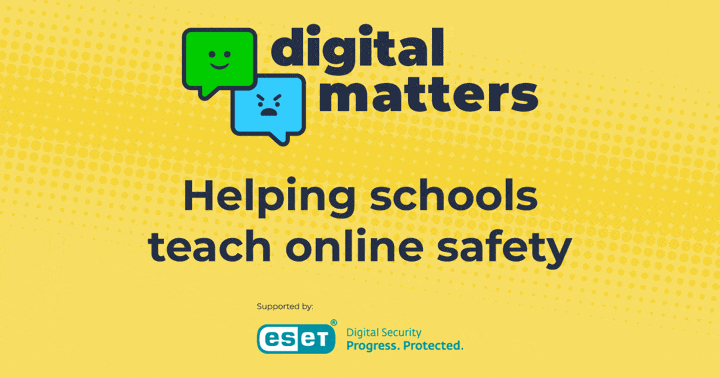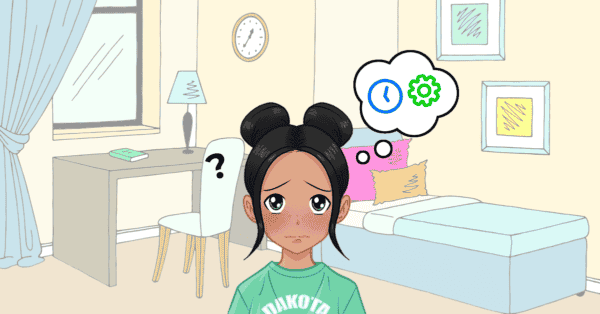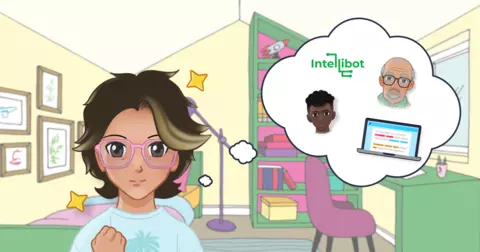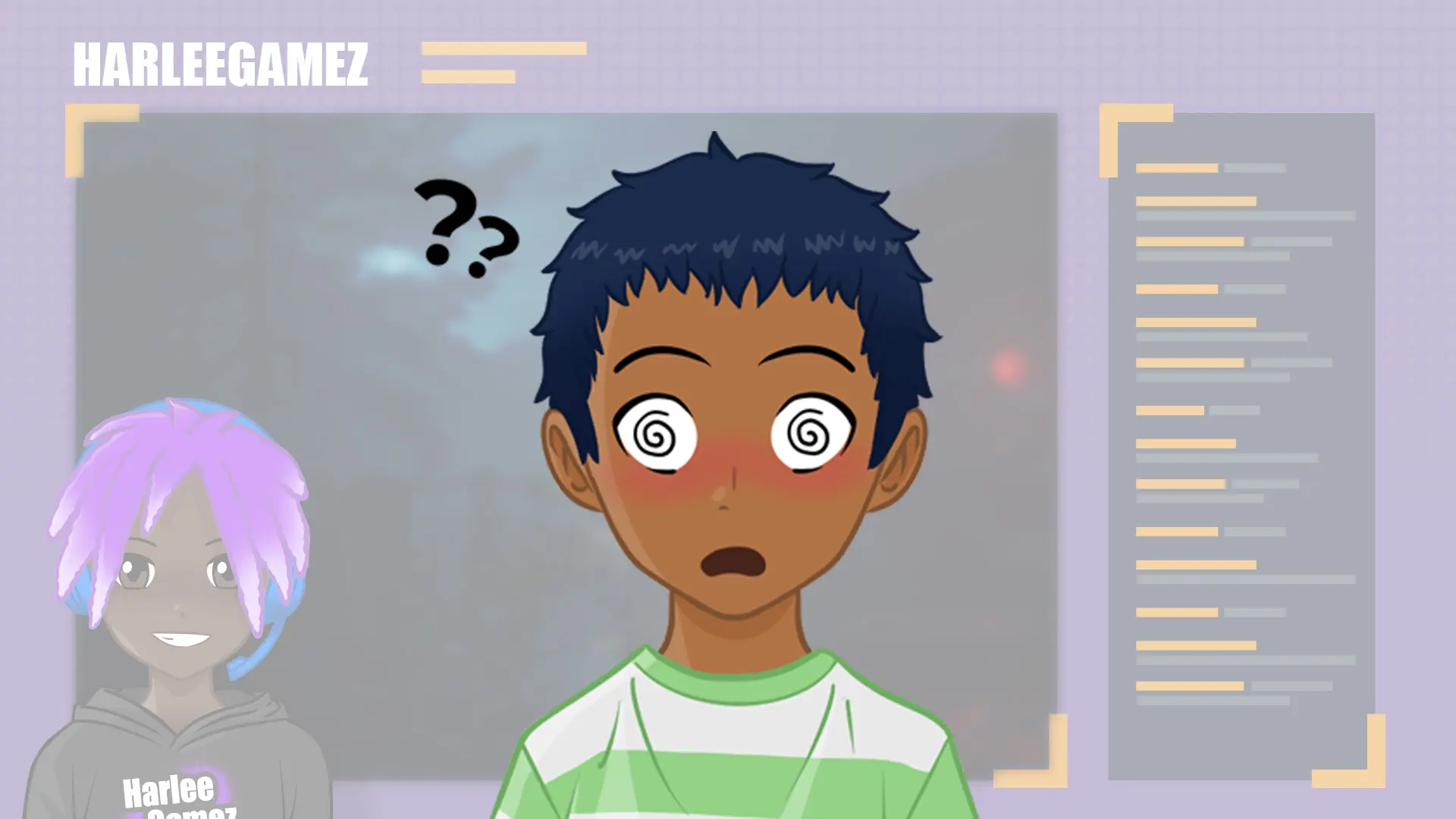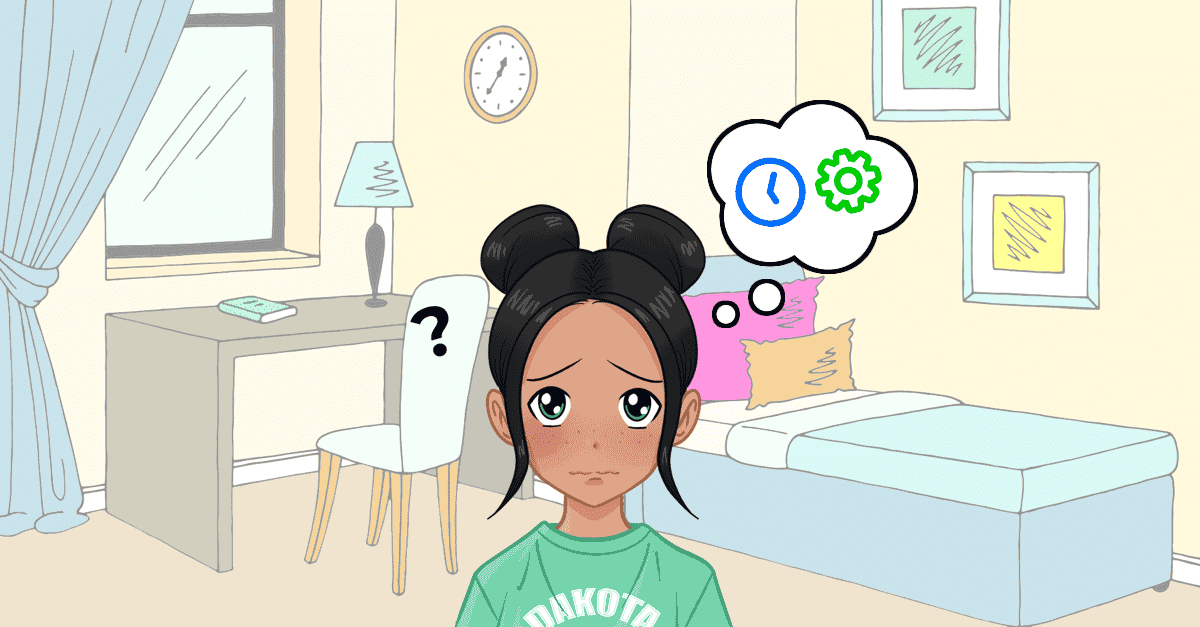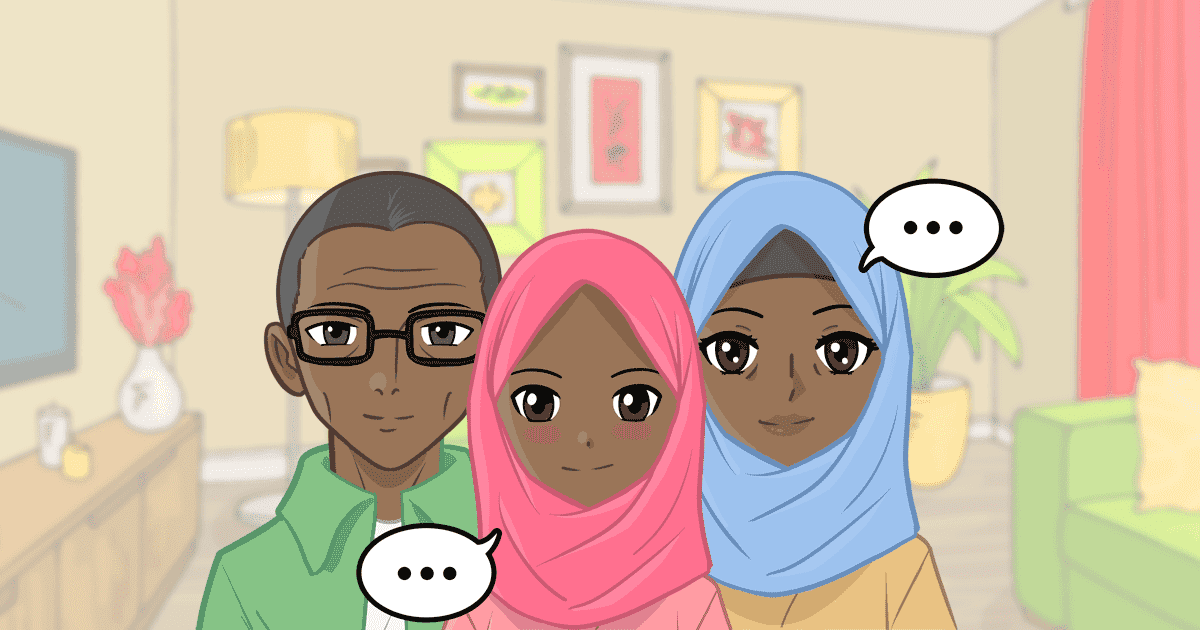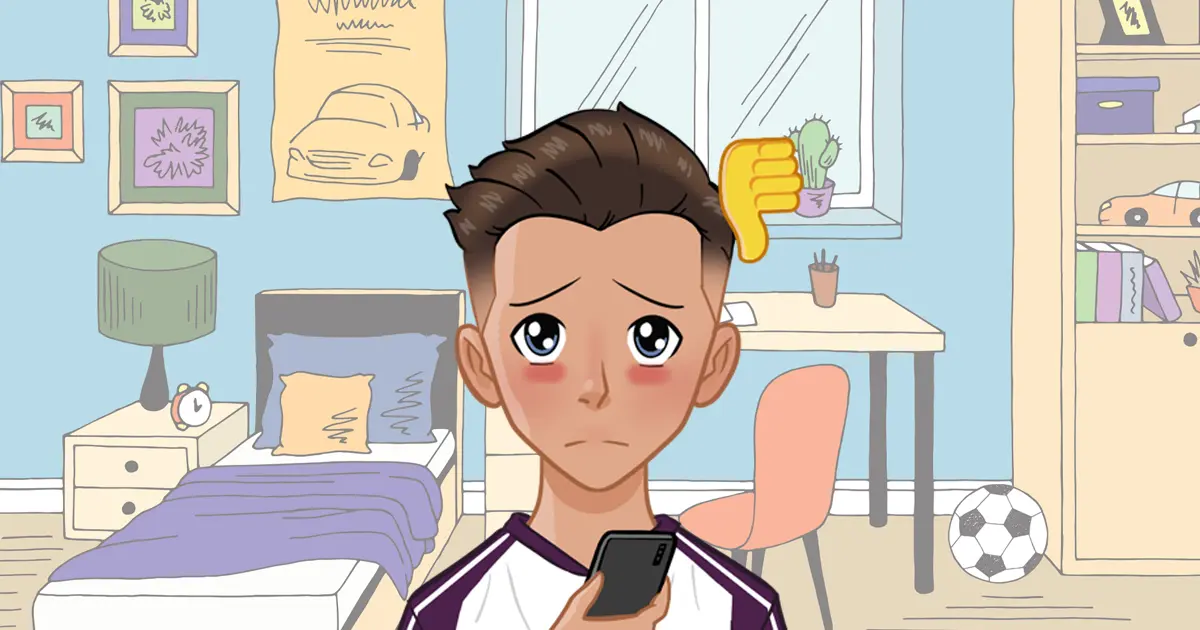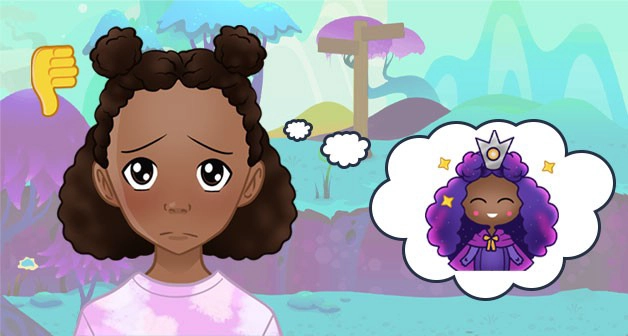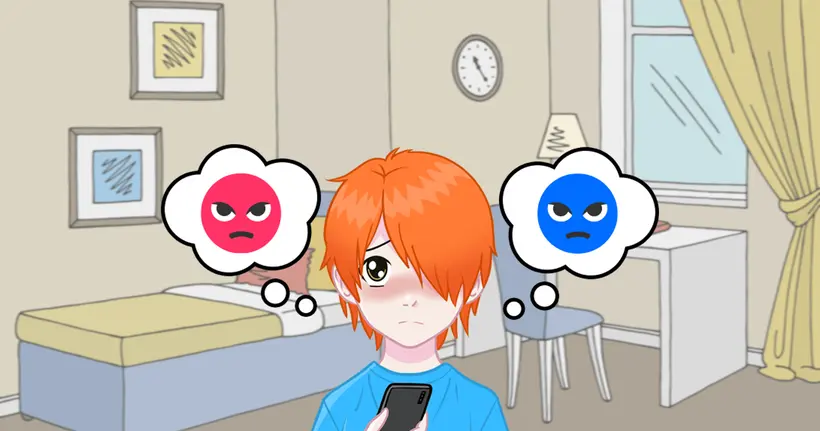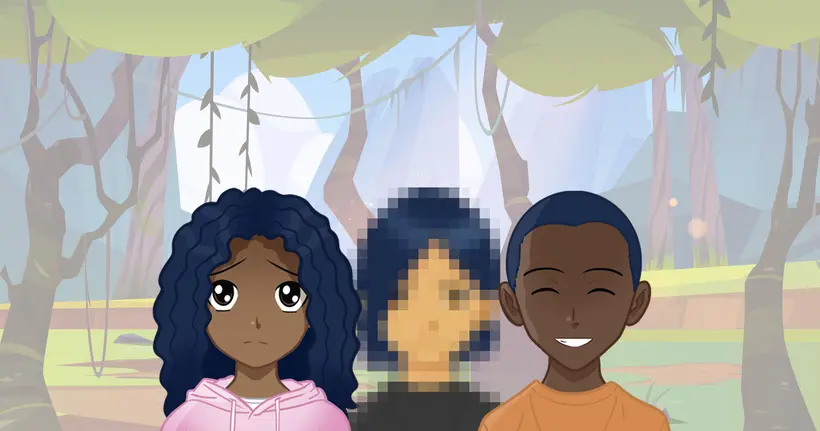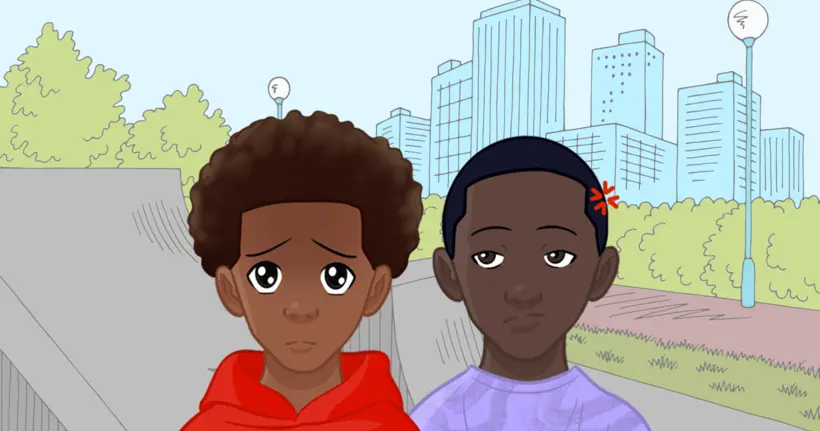What skills do children learn?
In this digital literacy lesson, children learn:
- Why laughing reactions don’t always show how someone feels
- How words — even ‘jokes’ — can really hurt people
- What perpetrators, victims and bystanders can do to spread positivity online
- How to get support as a victim of hateful language online.
Once Upon Online synopsis
In “Playing With Hate”, Nia is excited to start playing the most popular game at school — Voxyarn. She spends a lot of time creating an avatar that looks just like her (with some flourish) and feels really proud.
However, when she starts playing, some users say some really hurtful things. Students must help Nia and her nain navigate hate online to create a more positive space for all.
Go to the “Online Bullying” lesson.
![]()


